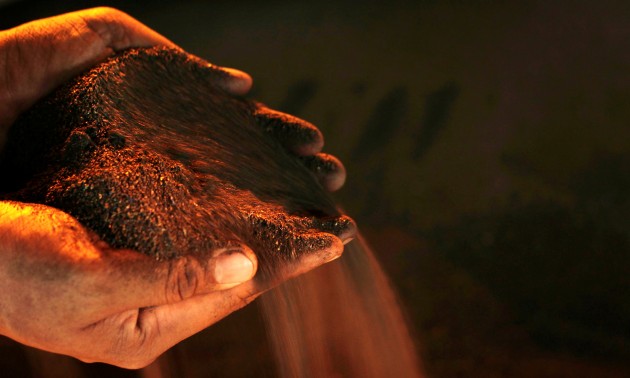Indonesia: Indonesia says it won’t flood nickel market
Indonesia’s abrupt easing of a three-year ban on nickel ore exports will not flood the global market but instead is aimed at balancing the country’s smelters and creating job opportunities at mines, top mining officials said on Saturday.
Indonesian mines may export up to 5.2 million tonnes of nickel ore a year under the country’s new rules, the mining minister said, only a fraction of its shipments when it was once a top global supplier of the stainless steel ingredient.
Energy and Mineral Resources Minister Ignasius Jonan’s comment came after an industry backlash over the government’s decision on Thursday to lift a ban on the export of nickel ore and bauxite under certain conditions.
Nickel prices and the shares of companies that had heavily invested in smelters tumbled after the news.
Senior mining officials defended the new rules, saying that the amount of nickel ore that can be exported must correspond to the miners’ smelter capacity and that it will be “comparable”.
“It’s not like they build small smelters and export as much as they can. No, we are going to regulate that,” the deputy mining minister, Arcandra Tahar, told reporters.
The government banned exports of nickel ore and bauxite in 2014 in order to spur higher-value processing of minerals. A year before the ban kicked in, Indonesia exported around 60 million tonnes of nickel ore.
The ban cost Southeast Asia’s biggest economy billions of dollars in lost revenue and led to job losses, as many mines laid off their workers.
The Philippines took Indonesia’s crown as the top nickel ore exporter, accounting for around one-quarter of the world’s mined nickel supply, although it has since restricted output due to environmental concerns.
Under new rules announced on Thursday, nickel miners must dedicate at least 30% of their smelter capacity to process low-grade ore, defined as having a nickel content of less than 1.7 percent.
Low-grade ore is harder to process and smelters have been reluctant to take it. But in order for miners to get high-grade ore, they have to dig through low-grade ore first, which then gets thrown out.
“If local smelters cannot absorb the low-grade nickel, why are they not happy that we allow the nickel miners to export some of it?” Jonan said.
“The goal of the government is for all the raw materials to be smelted here, but it will take time,” he said, noting that the policy shift would protect jobs and increase export duties.
Indonesia produces 17 million tonnes of nickel ore per year, of which 10 million is low-grade, Jonan said. The country’s nickel smelting capacity is 16 million tonnes and may reach 18 million this year, he added.
Miners will be able to export ore over the next five years only if they show progress toward building smelters either individually or with partners, among other conditions.
Last year, Tedy Badrujaman, the chief executive of PT Aneka Tambang, said the state-controlled miner hoped to export 20 million tonnes of low-grade nickel ore.
Antam’s shares jumped 6.4% on Friday as analysts said the company’s expected increase in sales could make up for a fall in nickel prices.
In 2014, Indonesia banned mineral ore exports while allowing the shipments of concentrates to continue for three more years. The full ban on concentrate exports was supposed to have kicked in on January 12, but the government also relented on that deadline.
Source: http://www.atimes.com/article/indonesia-says-wont-flood-nickel-market/


 English
English




